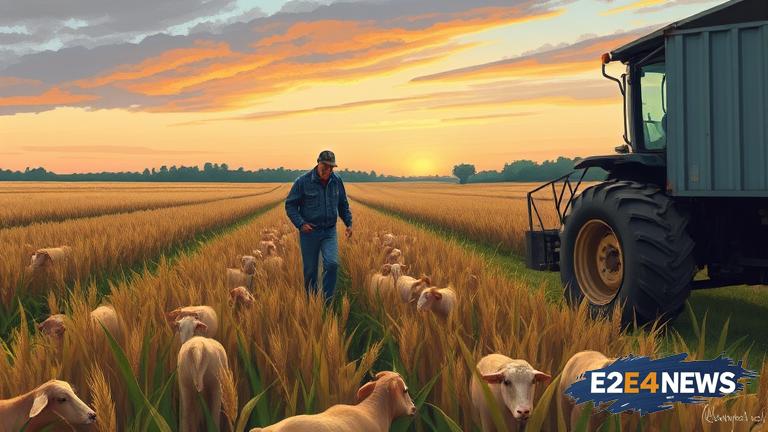The agricultural sector in New York is facing significant challenges as farmers grapple with rising costs and trade uncertainties. The state’s farmers are being squeezed by increasing expenses for labor, equipment, and supplies, making it difficult for them to maintain profitability. Furthermore, trade risks and tariffs are adding to the uncertainty, making it challenging for farmers to predict their revenue. The situation is particularly dire for small-scale farmers who have limited resources to absorb the shocks. Many farmers are being forced to explore alternative markets and revenue streams to stay afloat. However, this is not an easy task, as the competition in the agricultural market is fierce. The New York Farm Bureau has been advocating for policies that support farmers, including trade agreements that promote exports and reduce tariffs. Despite these efforts, the outlook for New York farmers remains uncertain. The state’s agricultural industry is a significant contributor to the local economy, and the struggles of farmers have far-reaching implications. The impact of the trade war with China has been particularly felt, as China is a major market for New York’s agricultural products. The tariffs imposed by China have reduced demand for New York’s products, leading to a decline in exports. This has resulted in a surplus of products, which has driven down prices and reduced farmers’ revenue. The situation is not limited to New York, as farmers across the United States are facing similar challenges. However, the state’s farmers are particularly vulnerable due to their reliance on exports. The New York State Department of Agriculture and Markets has been working to support farmers, including providing funding for programs that promote agricultural development. Additionally, the state has been investing in initiatives that promote local food systems and support small-scale farmers. Despite these efforts, more needs to be done to address the systemic issues facing the agricultural industry. The federal government has a critical role to play in supporting farmers, including negotiating trade agreements that promote exports and reduce tariffs. Moreover, policymakers must address the issue of rising costs, including labor and equipment expenses, which are squeezing farmers’ profit margins. The agricultural industry is a vital part of New York’s economy, and it is essential that policymakers take action to support farmers. This includes providing funding for programs that promote agricultural development, as well as addressing the systemic issues facing the industry. The future of New York’s agricultural industry depends on it. In conclusion, the challenges facing New York farmers are complex and multifaceted, requiring a comprehensive approach to address. By supporting farmers and promoting the agricultural industry, policymakers can help ensure the long-term viability of this critical sector. The state’s farmers are resilient and resourceful, but they need support to navigate the challenges they face. With the right policies and support, New York’s agricultural industry can thrive, providing economic benefits to the state and its residents.
